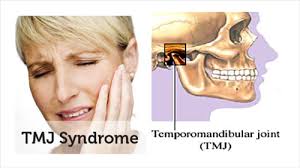Health A - ZT
TMJ Disorder Causes, Symptoms, Diagnosis and Treatment

What Is TMJ Disorder?
Temporomandibular joint and muscle disorders, commonly called “TMJ,” are a group of conditions that cause pain and dysfunction in the jaw joint and the muscles that control jaw movement.
Causes Of TMJ Disorder:
Some common causes of TMJ disorder are as follows:
- The disk erodes or moves out of its proper alignment
- The joint’s cartilage is damaged by arthritis
- The joint is damaged by a blow or other impact
Symptoms Of TMJ Disorder:
Some common symptoms of TMJ disorder include the following:
- Pain and tenderness on palpation in the muscles of mastication, or of the joint itself.
- Limited range of mandibular movement, which may cause difficulty eating or even talking.
- There may be locking of the jaw, or stiffness in the jaw muscles and the joints, especially present upon waking.
- There may also be in coordination, asymmetry or deviation of mandibular movement.
- Noises from the joint during mandibular movement, which may be intermittent. Joint noises may be described as clicking, popping, or grating.
Some less common symptoms include:
- Headache
- Pain elsewhere, such as the teeth, neck, or shoulder
- Hearing loss
- Tinnitus
- Sensation of malocclusion (feeling that the teeth do not meet together properly).]
- Pain or feeling of pressure behind the eyes
Diagnosis On TMJ Disorder:
To this date, there is no standardized test available which can diagnose TMJ disorder.
In order to diagnose it, the doctor is likely to do a physical exam where he would look for occurrence of any symptoms linked to TMJ disorder.
Treatment Of TMJ Disorder:
If the symptoms don’t fade on their own, the following courses of treatment are available:
- Medications
- Pain relievers
- Tricyclic antidepressants
- Muscle relaxants
- Sedatives
- Therapies
- Bite guards (oral splints)
- Physical therapy
- Counseling
- Surgical and other procedures
- Arthrocentesis
- Injections
- Surgery
By : Natural Health News




